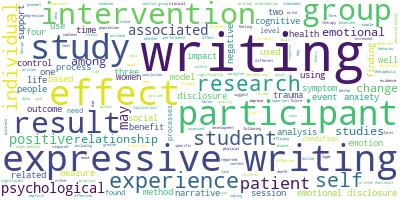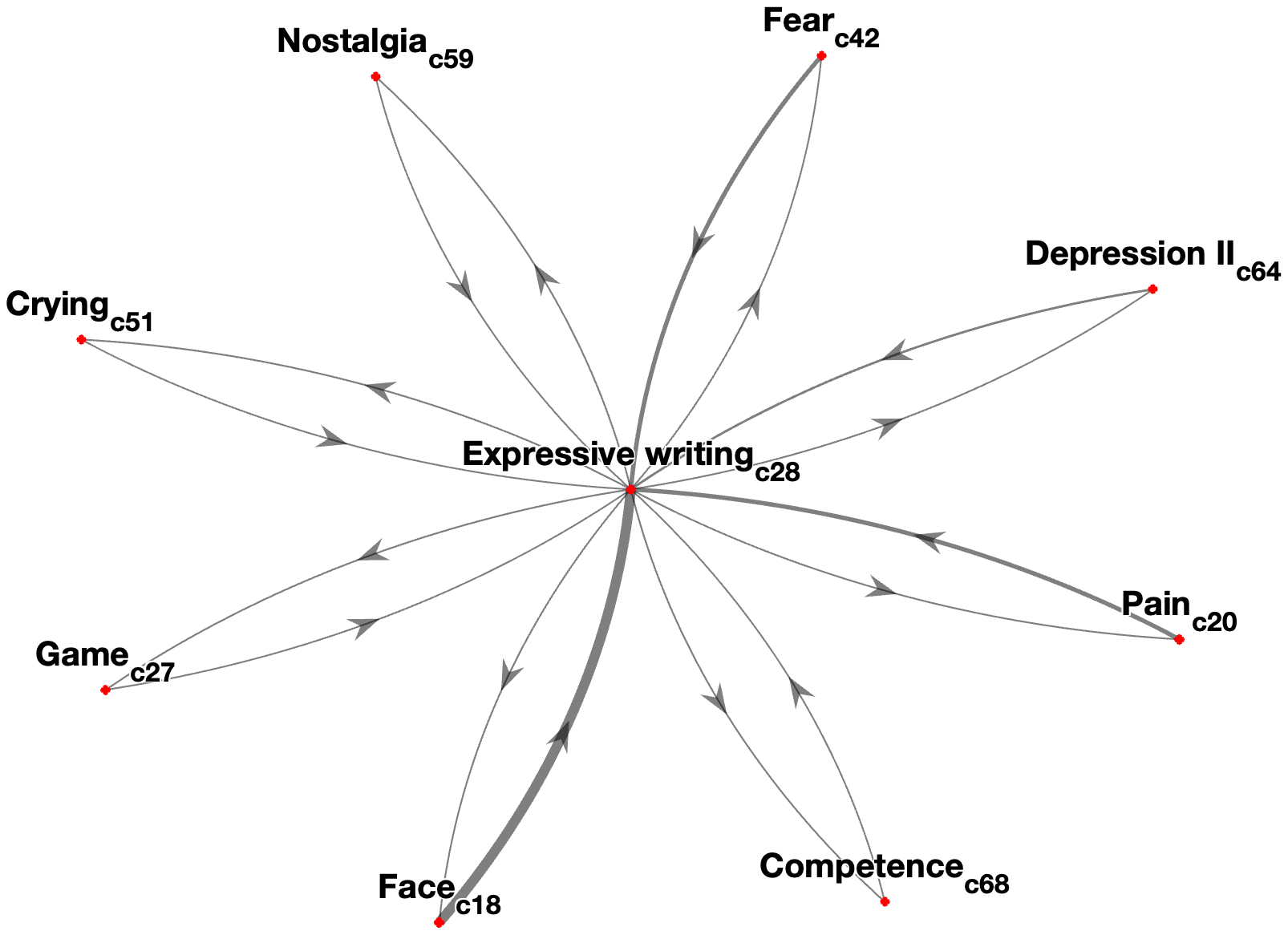Community 28: Expressive writing
Key words: Expressive writing

Interconnectedness

Missed connections
Community pairs with high citation-based distance but low semantic distance
From |
To |
Diff. Score |
Citation-Based Distance (Z) |
Semantic Distance (Z) |
|---|---|---|---|---|
|
2.33 |
1.2 |
-1.12 | ||
|
2.59 |
1.29 |
-1.3 | ||
|
2.54 |
1.22 |
-1.33 | ||
|
2.44 |
1.31 |
-1.13 | ||
|
2.43 |
1.3 |
-1.13 |
Central articles
-
Experimental disclosure and its moderators: a meta-analysis.
J. Frattaroli. 2006. Psychological bulletin
-
Expressive writing and health: Self-regulation of emotion-related experience, physiology, and behavior.
S. Lepore, M. Greenberg, Michelle L. Bruno, J. Smyth. 2002.
-
Putting stress into words: health, linguistic, and therapeutic implications.
J. Pennebaker. 1993. Behaviour research and therapy
-
Forming a story: the health benefits of narrative.
J. Pennebaker, J. Seagal. 1999. Journal of clinical psychology
-
Taking Pen to Hand: Evaluating Theories Underlying the Written Disclosure Paradigm
D. Sloan, B. Marx. 2006.
-
A closer examination of the structured written disclosure procedure.
D. Sloan, B. Marx. 2004. Journal of consulting and clinical psychology
-
Emotional and physical health benefits of expressive writing
K. Baikie, K. Wilhelm. 2005.
-
Mending Broken Hearts: Effects of Expressive Writing on Mood, Cognitive Processing, Social Adjustment and Health Following a Relationship Breakup
S. Lepore, M. Greenberg. 2002.
-
How Do I Love Thee? Let Me Count the Words
R. Slatcher, J. Pennebaker. 2006. Psychological science
-
Empirical foundations for writing in prevention and psychotherapy: mental and physical health outcomes.
B. Esterling, L. L'Abate, E. Murray, J. Pennebaker. 1999. Clinical psychology review